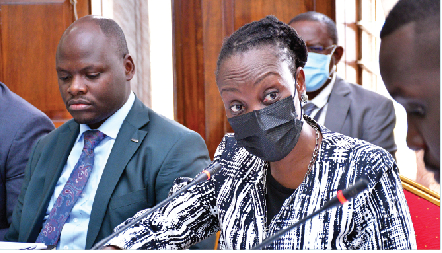Prime
Uganda Airlines: Balancing checks and balance with safeguard of reputation

Author: Raymond Mugisha. PHOTO/FILE
What you need to know:
- Reputation is simply the set of perceptions that stakeholders hold of an entity. These perceptions are not based on only facts. They can be driven by rumors and other non-verified matters and suspicions surrounding an organisation.
Checks and balances are necessary for the integrity of processes, especially processes as relate to business. They contribute to the reliability of the processes and thus serve strategic advantage by ensuring that relevant objectives remain in sight and that operations run in a safe, strategy-facing and sustainable manner.
For business purposes, the parliamentary committee probing matters at the national carrier would fit as a checks and balances spot. It should serve to both streamline operational processes and safeguard strategy and speak to the long-term goals and sustainability of the airline, among other things. In public entities, it also supplies assurance about accountability for resources.
The measures intended for attaining all the above are, in spirit, not different for the public sector, as they work for private sector organizations. The deliverables of these measures should be closely similar in many instances for both sectors. In the private sector, and ideally for the public sector as well, these measures must be applied with a holistic view.
The silo approach, in which one narrow aspect of an organization is safeguarded and promoted at the expense of other dimensions of the organization, is not desirable. Public interest concerns may distort this order to an extent in the public sector, but this principle is so key that ignoring it comes with certain adversity.
While the issues of the discussions and engagements between the parliamentary committee and the airline management and board are above the grade of this article, it is still noteworthy that there is a lack of holistic balance of strategic aspects of the airline. Ideally, an overarching approach, one that seeks to safeguard and promote the strategy of the airline would balance out probe activities and reputation concerns.
Reputation is simply the set of perceptions that stakeholders hold of an entity. These perceptions are not based on only facts. They can be driven by rumors and other non-verified matters and suspicions surrounding an organisation.
In this particular case of what is happening with the airline, the damage is therefore being done, regardless of whether the matters being highlighted will be clarified later or not.
For example, if the CEO will later provide her degree transcript, which Makerere University would readily avail, the damage done by media snaps that she did not have it will be having a dirt trail to still clean.
In a private sector scenario, she would have been asked to go to the University and get it, or the probing team would have written to the university to clarify the matter of her graduation. There would most likely be no media publications to grow the impression that she did not graduate from university. This way, avoidable reputation damage triggers against the organization would be avoided. There would be no pressure to demonstrate that it has been discovered that the CEO does not have a copy of her degree transcript, or ordinary level secondary school certificate, because simply there would be nothing for any stakeholder to benefit from such disclosures at all.
Various other issues that have come to the fore and been quickly put on the public plate represent a similar situation. These issues are pursuing the accountability and procedural compliance side of the organization. They are less tuned to the reputation and strategic growth needs of the organization. While they may be important, the style in which they have been conducted compromises the value they would otherwise add to the airline – because their dent on reputation may be far too bigger than the benefit they serve. One of the underlying strategy management tenets is in the need to balance control and business activities of an organization. If the point of balance is missed, control objectives may be attained at the expense of the organization itself – in which case the organization may buckle under the weight of lack of sensitivity to wider business health needs.
So, while holding individuals and organizations accountable is good and necessary, when it is done with little due care to the wider organization’s interests, it can be harmful as well. Accountability cannot replace the reputation of Uganda Airlines. The two must go hand in hand. Reputation is what stakeholders, including travelers and business partners, see the airline to be. It goes ahead of a lot what else is being handled, as far as generating business for the airline and growing it is concerned. It lies at the heart of the business and sets its pulse. It is being sacrificed and the damage caused by that, may be huge. The damage may be repairable, but as well could have been avoided. The checks and balances can be applied, and they should, while at the same time other strategic interests of Uganda Airlines are safeguarded. Since the airline is a high-stake entity for Uganda, this is important.
Raymond is a Chartered Risk Analyst and risk management consultant




